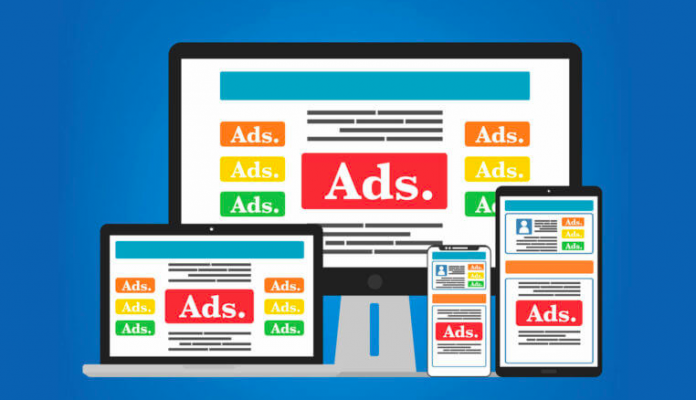Rob Anderson, CEO of Brand Hubb, says leading brands need to rethink their digital marketing strategies as customers become increasingly agitated by digital ads. Brand supporters are fed up with unsolicited digital marketing advances, and the brands who fail to respond to their irritation risk alienating them forever.
Customers are sick and tired of hanging onto their smart TV remotes to hit the ‘skip ad’ button and miffed at having digital adverts stuffed down their throats dozens of times during each Facebook or YouTube session.
Internet and social media users have long been complaining that the digital ads that flood their screens are irrelevant, repetitive and far too frequent. The millions of mainstream pay television viewers have even more to complain about. DStv subscribers receive advertising content despite paying high monthly subscription fees. DStv has taken a hit since Netflix launched; but has tweaked its reporting methodology to claim 19,5 million Africa-wide subscribers to its DStv Premium and DStv Compact Plus services by 31 March 2020.
Social media account holders on Facebook and Instagram are subject to countless unwanted ads and cannot opt out of the data-sharing arrangements that drive this content. Services such as Spotify and YouTube, meanwhile, infuriate their ‘free’ users by interrupting music and video feeds with adverts that frequently feature the same brand.
More and more websites are favouring ‘in copy’ ads that disrupt the user experience. This explains why more than 763 million computers and smartphones use ad-blocking measures worldwide, according to the 2020 Page Fair Ad-block Report.
Targeted advertising without consideration
Brands are spending a staggering amount on targeted advertising without giving a second thought to the reaction their customers might have. You have to consider the negative impact of this invasiveness.
Why do brands insist on ploughing ad-spend into Facebook, Google and YouTube instead of rewarding their loyal customers? These customers are, after all, the real engine room of brand awareness and market share growth.
The resentment of digital ads is coupled with growing awareness among tech-savvy consumers that their ‘free’ social media accounts come with strings attached. Customers who sign up with the likes of Facebook, Google, Instagram, Twitter and YouTube have to agree to wordy terms and conditions that give these internet giants carte blanche to leverage their personal data and serve them with targeted advertising content, among other activities.
But a recent study by Sprout Social found that advertisers were unable to convert the personal data collected on social media platforms into compelling digital marketing campaigns. Instead, customers are forced to interact with ads that have uninteresting content or are irrelevant. Fewer customers than ever are finding reasons to interact with these ads. The unhappiness with digital marketing practices coincides with a significant increase in expenditure via digital channels.
The Internet Advertising Revenue Report, a comprehensive survey conducted by PwC and sponsored by IAB SA, observes that Covid-19 has had a significant impact on the internet advertising industry. A summary of the survey findings notes that advertisers are containing costs and moving from offline into digital channels. It also reveals a spike in the consumption of both television and digital content during the lockdown.
The PwC Entertainment and Media Outlook 2019-2023, meanwhile, forecasts that R7.3 billion will be spent on Internet advertising in South Africa this year, with a huge chunk of this money going to paid search on Facebook, Google and other social media properties.
The CMO Survey: Special Covid-19 Edition, published June 2020, reveals that spending on mobile and social media marketing spiked by more than 70% in the first months of pandemic, with these channels absorbing almost a quarter of total marketing budgets.
The survey also found that investments in social media were positively correlated with company performance and that this medium would receive greater relative budget allocations in coming years. Despite this, digital marketers often fail in their quest to acquire and retain customers because they are unable to convert personal data into compelling value propositions.
There are real concerns that the misdirection of brands’ social media budgets will alienate loyal customers and dissuade potential customers from making a meaningful connection. Brands need to find innovative ways to differentiate their digital marketing campaigns to stand apart from the unsolicited ads that clog their customers’ online platforms or risk losing their trust.
How can this be done?
There are some clues in the CMO Survey, which observes that customers respond to superior product quality, excellent service and trusting relationships. Customers are more likely to interact with content if it meets the aforementioned needs, offers a unique customer experience and comes from a brand they trust. Another important consideration is that the bulk of the South African consumer market consumes digital content over smartphones. The IAB SA Digital Landscape Survey notes that 82% of respondents owned a personal mobile phone versus only 9% who claim to own a smart TV.
A change in digital advertising
We are nearing a step-change in digital marketing that will centre on marketing product directly to consumers via their preferred channel and with their informed consent. Your brand needs to operate at an innovative e-commerce platform that influences how customers interact with leading brands and has experienced a 728% growth in revenue and 19 times surge in user registrations in 2020 compared to 2019, despite the economic fallout caused by the pandemic and lockdown.
Find a platform that offers a brand reward solution that allows brands to redirect part of their digital advertising budget to the end-customer, creating unrivalled brand loyalty and allowing customers to engage with the brand on their own terms. The ability to offer more than a product, by way of enhanced customer engagements, will prove invaluable to brands over the longer term. Brands need to rethink their digital marketing strategies with a view to achieve meaningful customer interactions.
One of the great reveals in the Sprout Social study was that consumers were more interested in seeing ads from brands than from influencers, with a key emphasis on transparency and authenticity. An article titled ‘27% of social media users view ads more negatively’ and published on marketingdive.com observes that ‘consumers who make personal connections with a brand are more likely to be loyal customers’. Brands should differentiate themselves from competitor brands by offering the ultimate user experience to loyal and connected customers.











